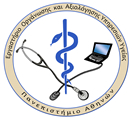Symptoms
|
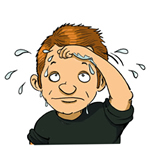 1. High fever 1. High fever
|
|
|
|
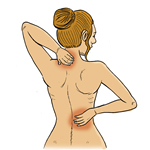 2. Muscle and joint pain 2. Muscle and joint pain
|
|
|
|
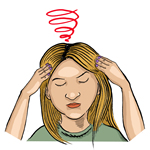 3. Headache 3. Headache
|
|
|
|
 4. Fatigue 4. Fatigue
|
|
|
|
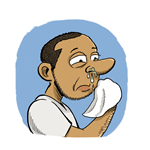 5. Runny nose 5. Runny nose
|
|
|
|
 6. Sore throat 6. Sore throat
|
|
 7. Cough (usually dry) 7. Cough (usually dry)
|
In addition, children may develop
|
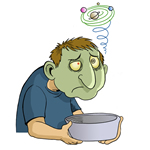 1. Nausea 1. Nausea
|
|
|
|
 2. Vomiting 2. Vomiting
|
|
|
|
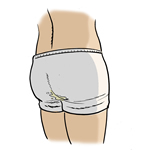 3. Diarrhea 3. Diarrhea
|
In Greece, influenza (the «flu») usually occurs during the winter months (from October to April). Symptoms last for 2-7 days, however cough may persist for quite some time. The flu can cause disease ranging from mild to severe. The majority of healthy people recover from the flu with no complications. It may lead to severe complications, even life-threatening complications resulting in death, in individuals at high risk (e.g. persons with cardiology, respiratory, nephrology, hematology etc. problems, malignancies, diabetes mellitus, very young infants, elderly persons, as well as transplant patients).
Transmission
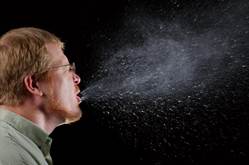

Influenza is transmitted from person to person through droplets produced while an infected person is talking, coughing or sneezing into the air, as well as through the hands, by touching contaminated objects or surfaces and then touching one's eyes, nose or mouth. Adults are infective one day before they get sick to 5-7 days from the time they manifest the symptoms. Children and patients with severe immunosuppression are infective for more than one week. Factors such as cold weather and indoor crowding increase influenza transmission.
Treatment

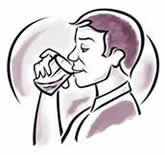

If the symptoms are intense, seek medical assistance. Get lots of rest and drink plenty of fluids, refrain from smoking, have your spaces well ventilated, take antipyretics – analgesics (not aspirin) for the treatment of fever and muscle pain. Antibiotics are not useful in the treatment of influenza.
Prevention
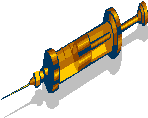
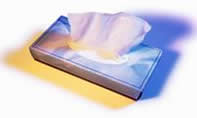

The most effective way to prevent the flu is to timely have a flu shot. In order to control the spread of influenza:
-
Avoid close contact with infected persons
-
If you are sick with the flu, avoid getting close to others, so as to keep from infecting them
-
Stay in your house when sick and avoid going to work, to school, to family or social gatherings, to crowded places and using public transportation. This way you will help people not get sick
-
Cover your mouth and nose with a tissue when you cough or sneeze
-
Avoid touching your eyes, nose or mouth, and wash your hands frequently
When to seek medical advice
If you have these symptoms, you should seek medical advice immediately. Call your doctor when you have:
-
High fever that does not subside
-
Rapid breathing, difficulty in breathing or chest soreness and heaviness
-
Cyanosis (blue or purple appearance of the skin)
-
Refusal to drink or eat, or severe vomiting
-
Reduced activity, sleepiness
-
The fever comes back or the cough is getting worse after an initial recovery period, as well as deterioration of a chronic co-existing disease (heart, respiratory disease, diabetes etc.)
In addition, you should immediately seek medical advice once you develop influenza symptoms if you belong in any of the high risk groups mentioned above, as well as if you are pregnant.
Vaccines
Vaccination is recommended yearly in the months October – November, however, it can be administered throughout the influenza period. One dose of influenza vaccine is recommended once a year to all adults over 60 years of age with the vaccine recommended (World Health Organization guidelines) in our country. Additionally, vaccination is recommended for individuals belonging to groups who are at increased risk for severe flu-associated complications.
References
keelpno
National Immunization Program for Children and Adolescents 2011
























